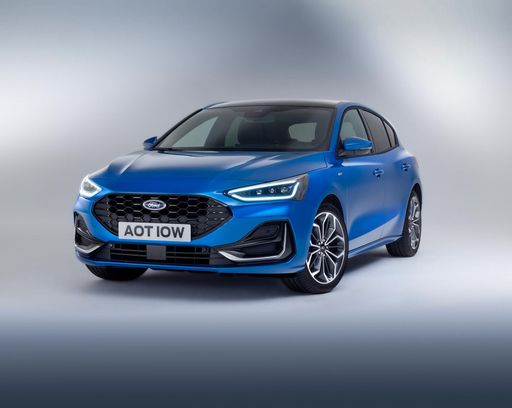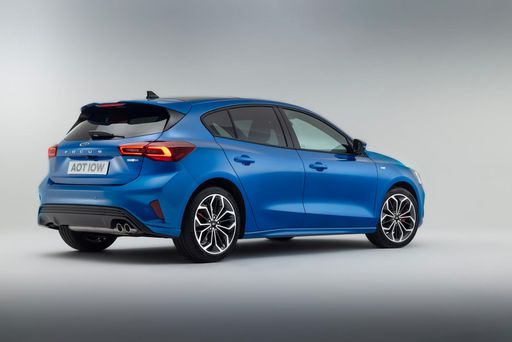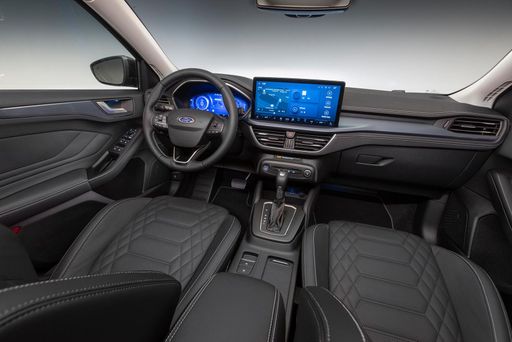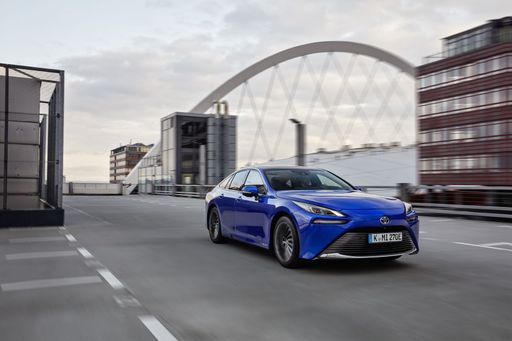Ford Focus vs Toyota Mirai – Which model is better for everyday use?
Costs and Efficiency:
Looking at overall running costs, both models reveal some interesting differences in everyday economy.
Ford Focus has a convincingly advantage in terms of price – it starts at 27500 £, while the Toyota Mirai costs 58700 £. That’s a price difference of around 31191 £.
Engine and Performance:
Power, torque and acceleration are the classic benchmarks for car enthusiasts – and here, some clear differences start to show.
When it comes to engine power, the Ford Focus has a clearly perceptible edge – offering 280 HP compared to 182 HP. That’s roughly 98 HP more horsepower.
In acceleration from 0 to 100 km/h, the Ford Focus is clearly quicker – completing the sprint in 5.70 s, while the Toyota Mirai takes 9.20 s. That’s about 3.50 s faster.
In terms of top speed, the Ford Focus performs evident better – reaching 250 km/h, while the Toyota Mirai tops out at 175 km/h. The difference is around 75 km/h.
There’s also a difference in torque: Ford Focus pulls evident stronger with 420 Nm compared to 300 Nm. That’s about 120 Nm difference.
Space and Everyday Use:
Whether family car or daily driver – which one offers more room, flexibility and comfort?
Both vehicles offer seating for 5 people.
In curb weight, Ford Focus is clearly lighter – 1330 kg compared to 1900 kg. The difference is around 570 kg.
In terms of boot space, the Ford Focus offers clearly perceptible more room – 392 L compared to 300 L. That’s a difference of about 92 L.
When it comes to payload, Ford Focus hardly perceptible takes the win – 560 kg compared to 515 kg. That’s a difference of about 45 kg.
Who wins the race?
The Ford Focus proves to be is largely superior and therefore becomes our DriveDuel Champion!
Ford Focus is the better all-rounder in this comparison.
Costs and Consumption
View detailed analysis
Engine and Performance
View detailed analysis
Dimensions and Body
View detailed analysis
 @ Ford Motor Company / Ford Media Center
@ Ford Motor Company / Ford Media Center
Ford Focus
Ford Focus
The Ford Focus remains a clever all‑rounder that balances sharp handling with everyday comfort, making it a strong choice whether your commute is city streets or country lanes. Its practical cabin and sensible running costs mean you’ll spend more time enjoying the drive and less time worrying about ownership, with a playful streak underfoot that keeps things interesting.
details @ Ford Motor Company / Ford Media Center
@ Ford Motor Company / Ford Media Center
 @ Ford Motor Company / Ford Media Center
@ Ford Motor Company / Ford Media Center
 @ Ford Motor Company / Ford Media Center
@ Ford Motor Company / Ford Media Center
Toyota Mirai
The Toyota Mirai represents a groundbreaking step in hydrogen fuel cell technology, offering an eco-friendly alternative to traditional petrol engines. Its sleek design and futuristic aesthetic make it a standout on the road, while the interior combines comfort with cutting-edge features. With its impressive range and quick refuelling capabilities, the Mirai is paving the way for the future of sustainable motoring.
details @ Toyota Motor Corporation
@ Toyota Motor Corporation
 @ Ford Motor Company / Ford Media Center
@ Ford Motor Company / Ford Media Center
|
 @ Toyota Motor Corporation
@ Toyota Motor Corporation
|
|
|
|
Costs and Consumption |
|
|---|---|
|
Price
27500 - 42700 £
|
Price
58700 - 66700 £
|
|
Consumption L/100km
4.9 - 8 L
|
Consumption L/100km
-
|
|
Consumption kWh/100km
-
|
Consumption kWh/100km
-
|
|
Electric Range
-
|
Electric Range
650 km
|
|
Battery Capacity
-
|
Battery Capacity
-
|
|
co2
117 - 183 g/km
|
co2
-
|
|
Fuel tank capacity
52 L
|
Fuel tank capacity
5 L
|
Dimensions and Body |
|
|---|---|
|
Body Type
Hatchback
|
Body Type
Sedan
|
|
Seats
5
|
Seats
5
|
|
Doors
5
|
Doors
4
|
|
Curb weight
1330 - 1529 kg
|
Curb weight
1900 - 1930 kg
|
|
Trunk capacity
392 L
|
Trunk capacity
300 L
|
|
Length
4382 - 4397 mm
|
Length
4975 mm
|
|
Width
1825 - 1844 mm
|
Width
1885 mm
|
|
Height
1438 - 1482 mm
|
Height
1470 mm
|
|
Max trunk capacity
1354 L
|
Max trunk capacity
-
|
|
Payload
495 - 560 kg
|
Payload
485 - 515 kg
|
Engine and Performance |
|
|---|---|
|
Engine Type
Petrol MHEV, Diesel, Petrol
|
Engine Type
Hydrogen
|
|
Transmission
Manuel, Automatic
|
Transmission
Automatic
|
|
Transmission Detail
Manual Gearbox, Dual-Clutch Automatic, Automatic Gearbox
|
Transmission Detail
Reduction Gearbox
|
|
Drive Type
Front-Wheel Drive
|
Drive Type
Rear-Wheel Drive
|
|
Power HP
115 - 280 HP
|
Power HP
182 HP
|
|
Acceleration 0-100km/h
5.7 - 11.8 s
|
Acceleration 0-100km/h
9.20 s
|
|
Max Speed
186 - 250 km/h
|
Max Speed
175 km/h
|
|
Torque
170 - 420 Nm
|
Torque
300 Nm
|
|
Number of Cylinders
3 - 4
|
Number of Cylinders
-
|
|
Power kW
85 - 206 kW
|
Power kW
134 kW
|
|
Engine capacity
999 - 2261 cm3
|
Engine capacity
-
|
General |
|
|---|---|
|
Model Year
2022 - 2024
|
Model Year
2021 - 2022
|
|
CO2 Efficiency Class
D, G
|
CO2 Efficiency Class
-
|
|
Brand
Ford
|
Brand
Toyota
|
What drive types are available for the Ford Focus?
Available configurations include Front-Wheel Drive.
The prices and data displayed are estimates based on German list prices and may vary by country. This information is not legally binding.
